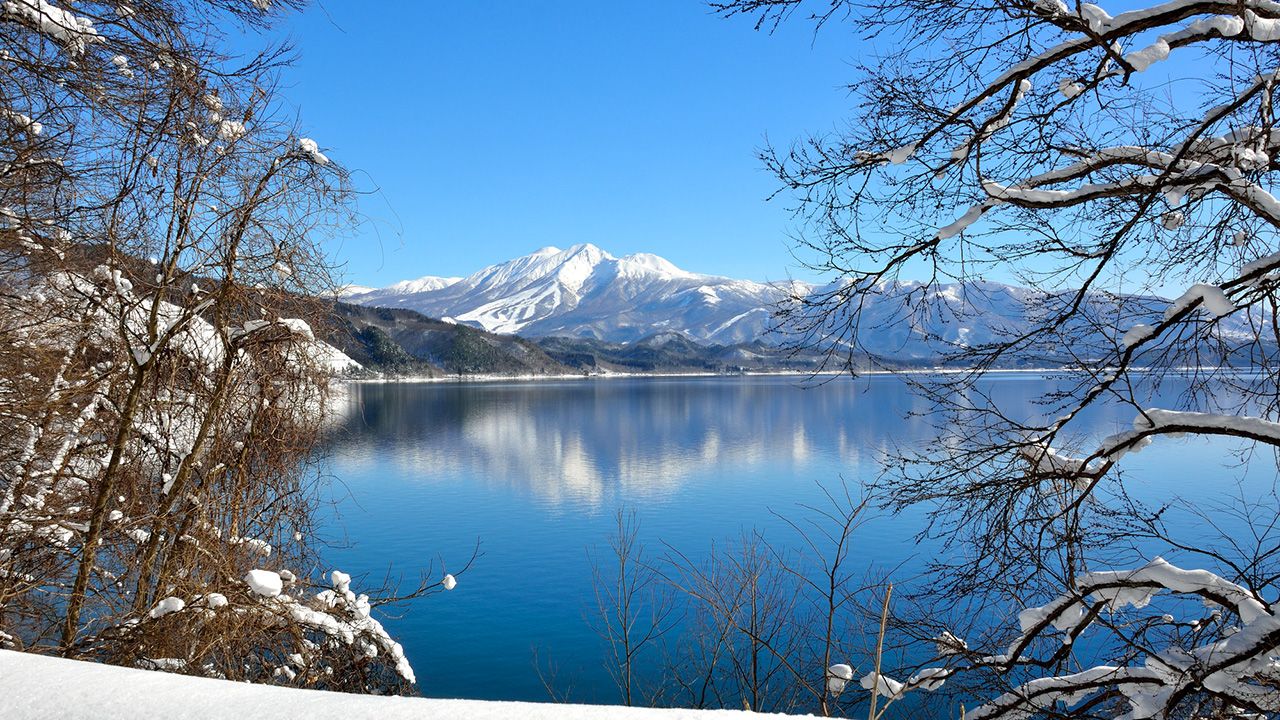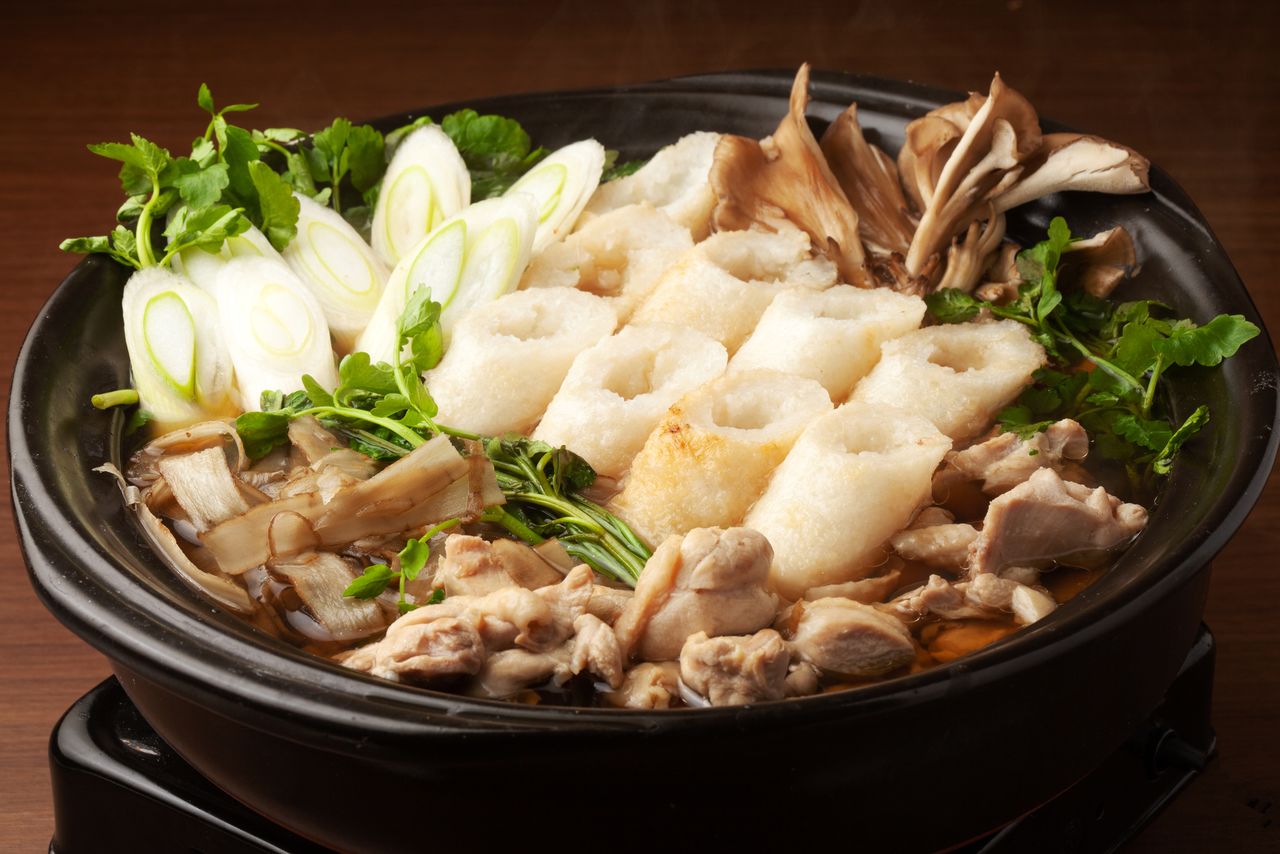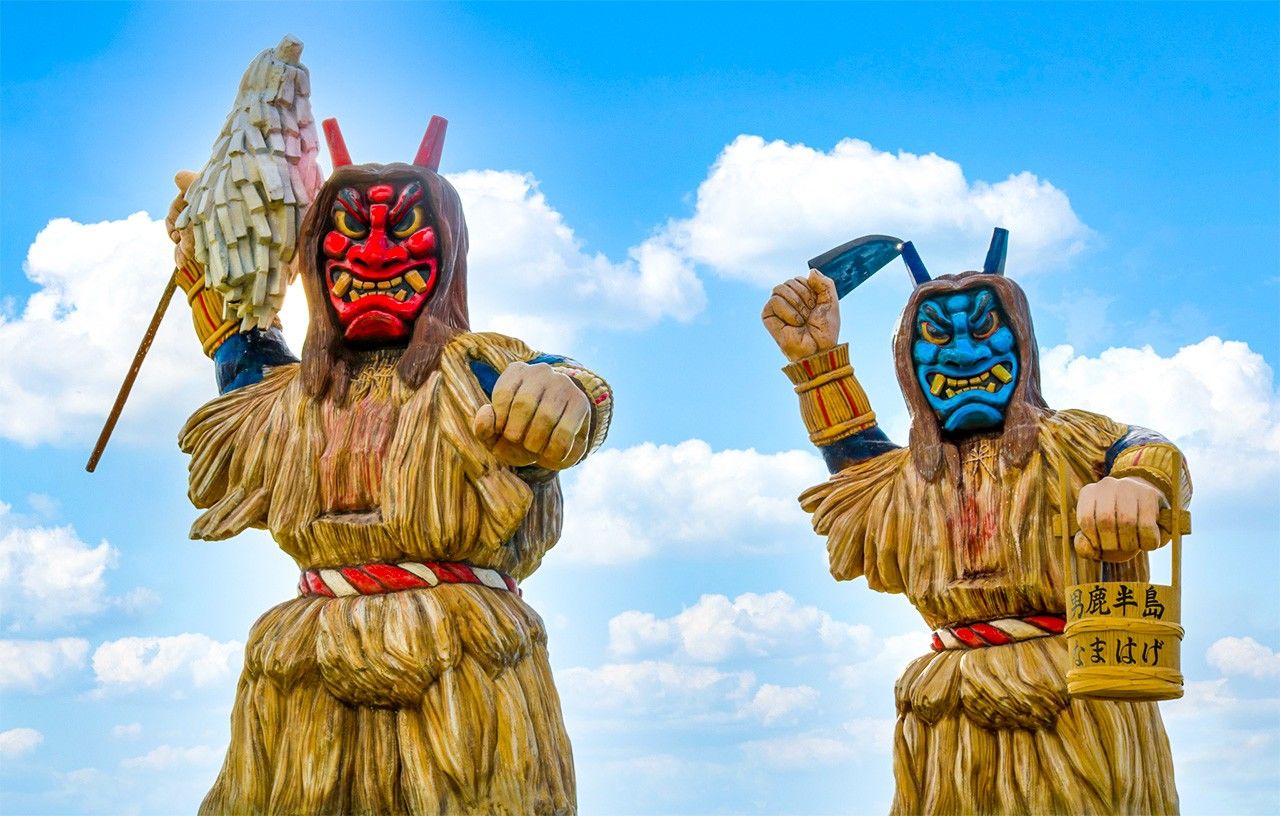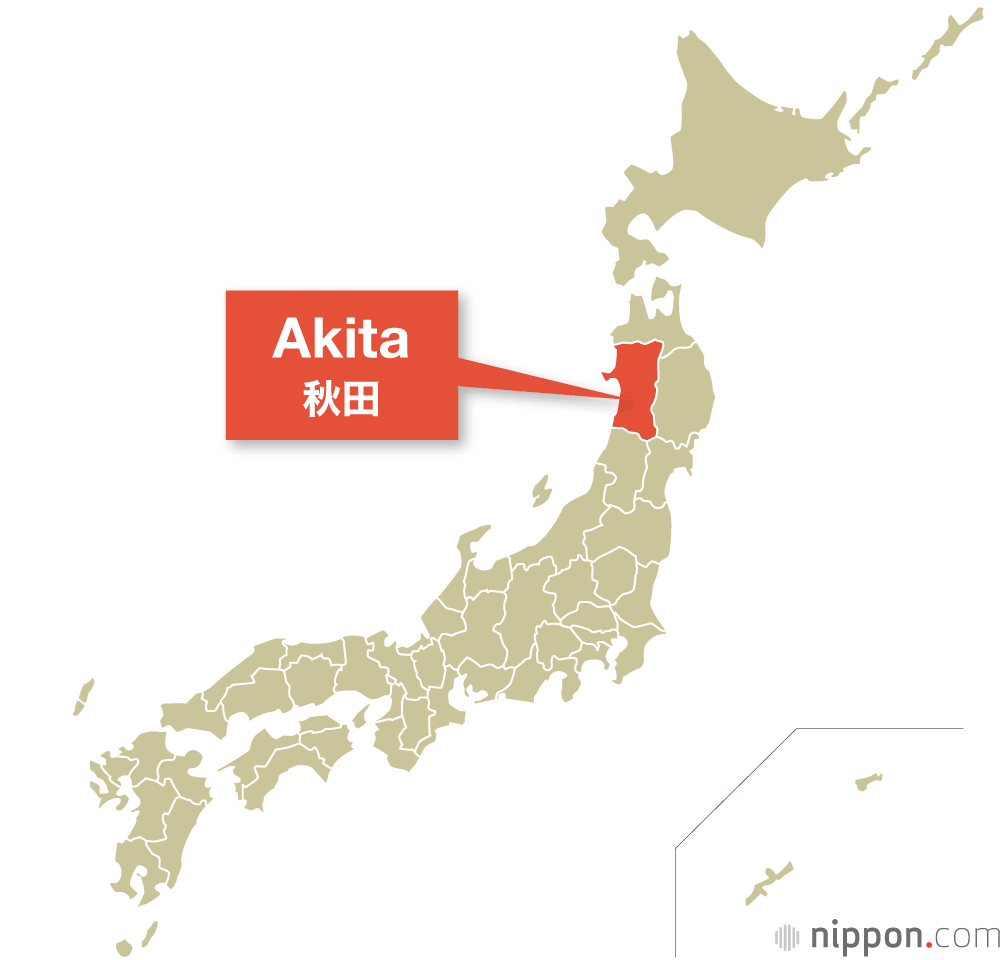
Akita Prefecture
Guideto Japan
Culture History- English
- 日本語
- 简体字
- 繁體字
- Français
- Español
- العربية
- Русский
Akita Prefecture, on the Sea of Japan coast in the Tōhoku region, is the sixth largest prefecture by area, but thirty-eighth by population. Its rugged mountains, harsh winter weather, and distance from the country’s population centers make it a place to go to get away from it all; more than 10% of the prefecture’s land falls inside of natural parks.
Akita Prefecture at a Glance
- Established in 1871 (formerly parts of Dewa and Mutsu provinces)
- Capital: Akita
- Population: 960,000 (as of Oct. 2020)
- Area: 11,638 km2
The city of Akita, the prefectural capital, is the largest in the prefecture, with more than 300,000 residents. Siberian storms in winter bring it heavy snowfall, like much of the Japan Sea coastal regions of Honshū and Hokkaidō—the city is often included on top-10 lists of the world’s major cities with the most annual snowfall. The coastline is largely straight and smooth, with the exception of the Oga Peninsula in the northwest of the prefecture; in the center and east lie the Dewa and Ōu mountain ranges.
Akita borders Aomori to the north, Iwate to the west, and Miyagi and Yamagata to the south. In 1997 the Akita Shinkansen was completed, connecting the capital to Morioka, Iwate, and south to Tokyo on the Tōhoku Shinkansen route.
Akita’s natural resources long made it a regional economy dependent largely on agriculture, forestry, and fishing. Since World War II, however, the prefecture has come to produce a range of industrial products, such as radio receivers and camera lenses, in which it led the nation as recently as 2008.

The Akita-inu is a breed of dog originating in the prefecture. (© Pixta)
One particularly adorable natural resource from the prefecture is the Akita-inu, a breed of dog selected as a national natural monument. The most famous of these was the faithful Hachikō, whose statue is a popular meeting point outside Tokyo’s Shibuya Station.
Akita is still known as a major rice producer. One of its most famous contributions to Japanese cuisine, kiritanpo, is pounded rice molded around wooden skewers and toasted over an open flame before being eaten with miso paste or as a main nabe hot-pot ingredient.

A hearty kiritanpo nabe is the perfect meal in wintry Akita. (© Pixta)
The namahage, frightfully costumed ogres who barge into homes on the Oga Peninsula each New Year’s Eve and ask whether the children are behaving properly, are a famous aspect of Akita’s local culture. In the summer, a major tourist draw is the Ōmagari National Fireworks Competition, which brings together the nation’s top pyrotechnicians to show their best work to hundreds of thousands of observers.
Akita is also known as the birthplace of Ono no Komachi, a ninth century poetess celebrated as one of the Rokkasen, or “poetic immortals,” and for her beauty, said to be such that to this day her name is a synonym for feminine beauty. Her name has also been given to the Komachi train service connecting Akita with Tokyo on the Shinkansen network.

Statues of namahage ogres on the Oga Peninsula. In 2018 they were inscribed on UNESCO’s list of intangible cultural heritage as part of “Raiho-shin, Ritual Visits of Deities in Masks and Costumes” taking place in eight prefectures across Japan. (© Pixta)

Akita Governor Satake Norihisa introduces Ndatchi, the prefectural mascot, a robot in the form of a namahage child who has come from the future to spread the word about Akita’s charms. (© Jiji)
Famous Figures
- Suga Yoshihide (1948–): Politician. Served as chief cabinet secretary to Prime Minister Abe Shinzō from 2012 to 2020 before taking the premiership himself from 2020 to 2021.
- Akashi Yasushi (1931–): Diplomat. After graduating from the University of Tokyo, went to the United States as a Fulbright Scholar and later a graduate student at the Tufts University Fletcher School of Law and Diplomacy. In 1957 he became the first Japanese national to go to work for the United Nations Secretariat; he would go on to serve in a number of key roles, rising to the position of under-secretary-general. He also served as Japan’s ambassador to the United Nations.
For more information, see our article “Akita Prefecture: The Deep North.”
(Originally published in English. Banner photo: A snowy view of Lake Tazawa in the east of Akita Prefecture. © Pixta.)
For the complete list of the country’s 47 prefectures, see “The Prefectures of Japan.”
